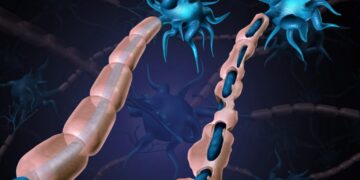March 6, 2025 Story by: Editor
Eczema, or atopic dermatitis, is the most prevalent skin condition globally, impacting over 200 million people. While researchers have long understood its causes, the reasons behind its higher prevalence and severity among African Americans have remained unclear.
Now, a pioneering genetic study from Cincinnati Children’s Hospital has shed light on this disparity, potentially paving the way for more personalized treatments. Published in Human Genetics and Genomics Advances, the research examined DNA from more than 1,700 African Americans, revealing previously unidentified genetic factors linked to the condition.
Genetic Markers Provide New Insights
“By looking at ancestry, we can find specific genetic markers that are more common in certain populations,” explains Tesfaye Mersha, Ph.D., the study’s lead researcher and a faculty member for Asthma Research at Cincinnati Children’s Hospital Medical Center in Ohio. “This leads to more accurate risk assessments and personalized treatments.”
For years, doctors have observed that Black Americans experience eczema at higher rates than those of European descent. However, most genetic research has predominantly focused on individuals of European or East Asian ancestry, leaving a gap in understanding how the condition affects people of African heritage.
Mersha’s study helps bridge this gap by identifying new genetic factors that influence eczema risk among Black Americans. Researchers analyzed genetic material from individuals with and without eczema, specifically examining how mixed ancestry—the blend of African and European genetic backgrounds common among Black Americans—impacts the likelihood of developing the condition. Their findings uncovered several previously unrecognized genes associated with eczema, which had not been identified in earlier studies of European populations.
One particularly notable discovery was a genetic variant in the SGK1 gene, which appears to be unique to individuals of African descent. Additionally, the study found that some genes were more active in eczema-affected skin than in healthy skin.
A Complex Condition with Multiple Triggers
Prior to this research, scientists understood that eczema arises from a combination of factors. A compromised skin barrier, which protects against irritants and retains moisture, is a significant contributor. Environmental triggers—such as harsh soaps, detergents, and stress—can also provoke flare-ups. Another key element is the immune system, which can overreact and cause inflammation.
Family history remains one of the strongest indicators of eczema risk. “Over the last 15 years, we’ve identified more than 30 genes that can increase the risk of atopic dermatitis,” says Paras Vakharia, M.D., a dermatologist at Northwestern Medicine in Evanston, IL. “Most of these genes affect either how the immune system works or how the skin’s outer layer develops.”
Toward More Personalized Treatments
Mersha’s findings have the potential to transform eczema treatment approaches by considering genetic differences among populations. Currently, most treatments—including steroid creams and biologic medications—are designed as universal solutions. However, identifying genetic variations could lead to more targeted therapies that align with a person’s genetic profile. In the future, doctors may be able to conduct genetic tests to determine which medications are most effective for each individual, leading to better outcomes with fewer side effects.
While Dr. Vakharia acknowledges the promise of these discoveries, he also emphasizes the need for a comprehensive approach: “It’s not just about genes; environmental factors and immune system responses also play important roles,” he says. “We need treatments that address all these factors.” Nonetheless, he remains optimistic about the study’s implications: “Understanding these genetic differences could help develop more targeted treatments, whether through addressing specific gene mutations or even gene therapy.” These advancements could bring scientists closer to creating treatments that are more effective for all individuals, regardless of their ancestry.
Source: Health Central
















